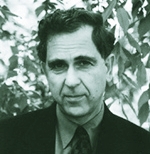
I straddle the worlds of social science and political journalism. I'm a professor of sociology and public affairs at Princeton University and its Woodrow Wilson School and co-founder and co-editor of a liberal political magazine, The American Prospect.
I've long thought that there needed to be a clear and concise statement of what liberalism is about, how it has developed, and how it ought to be conceived and fought for. Freedom's Power is that book. It brings together much of what I have learned over the past several decades about history, theory, and contemporary politics, all in the effort to explain, defend, and advance the liberal project.
Most people in the academy develop a specialty and stick with it. That has never been my pattern in teaching, research, or writing. First at Harvard and now at Princeton, I've taught courses on a range of subjects: social theory, political sociology, the sociology of public finance, health policy, American society and politics, the information revolution, and communications law and public policy.
Twice I've devoted eight years to the research and writing of a book. The first of those projects was about the historical development of American medicine, the second about the development of communications. In each case, to avoid becoming lost in the details, I tried to keep my eye on the bigger picture. Through the years I've also continued to write about a broad range of subjects, including both domestic and foreign policy. When people ask my specialty, I sometimes say that—like my old mentor, the sociologist Daniel Bell—I specialize in generalizations.
It's tricky work, but not without its rewards. The Social Transformation of American Medicine (1983) won the Pulitzer prize for general nonfiction, the Bancroft prize in American history, and the C. Wright Mills Award. The Creation of the Media (2004) received the Goldsmith Book Prize.
When Robert Kuttner, Robert Reich, and I co-founded The American Prospect in 1990, we hoped it would fill a void that had developed as various older liberal publications had drifted to the right or failed to engage politics constructively. Originally based in Princeton, where the journal had a tiny office and an only slightly larger circulation, the Prospect started out as a policy quarterly, modeled after such publications as Foreign Affairs. Despite our modest readership, we had a quick lift-off as the magazine became a platform for some of the critical policy discussion that led up to the 1992 Clinton campaign. In late 1992 the office moved up to Boston, where Bob Kuttner could be the managing partner. Not long after, I moved to Washington to work in the Clinton White House on health care reform. Except for that stint in government, I've continued to be involved with the Prospect since its founding, though its main office is now in Washington and it has evolved from a policy quarterly into more of a political magazine. You can check out my writing for the Prospect here; a full list of all my publications, with links to the texts available online, is available here.
Although I first broached some of the ideas for Freedom's Power in articles for the Prospect and other publications, the book is entirely new. Like my own career, it straddles the realms of theory, history, and contemporary social and political analysis. I do not claim to have invented a new philosophy; there is a rich tradition of liberal thought and politics behind this book. If you know the tradition well, I hope that you nonetheless find the book to be a provocative interpretation of its history, central ideas, and contemporary implications. And if much of the history of liberal ideas and politics is unfamiliar, consider the book as an invitation to enter into—and renew—the tradition.
Paul Starr


